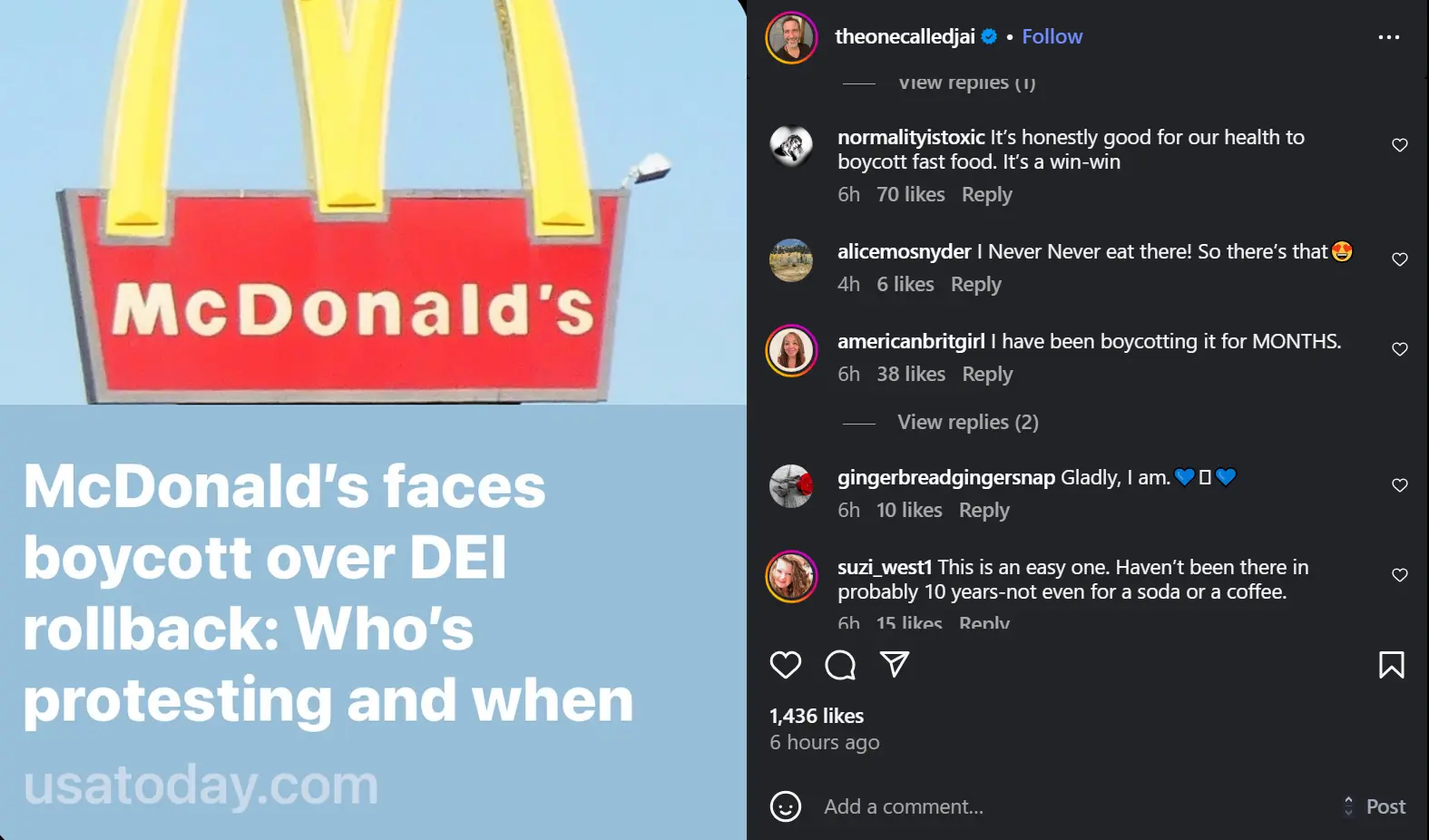From June 24 to 30, a nationwide boycott of McDonald’s is set to take effect, spearheaded by grassroots advocacy group The People’s Union USA. The protest action is part of the organization’s broader “Economic Blackout Tour,” targeting major corporations for what activists describe as corporate greed, labor exploitation, and superficial DEI commitments.
Why Is McDonald’s Being Boycotted Over DEI?
In January 2025, McDonald’s scaled back several of its Diversity, Equity, and Inclusion (DEI) initiatives. The chain dropped aspirational leadership diversity goals, ended its supplier diversity program, and paused its participation in external diversity surveys.

The People’s Union, led by John Schwarz, argues these rollbacks were performative. Schwarz stated on Instagram, “We’re boycotting McDonald’s because they’ve shown time and time again that profit matters more than people… their DEI efforts feel more like promotional stunts than real systemic change”.
Motivations Behind the Protest
Beyond DEI, the boycott highlights wider grievances against McDonald’s, including:
-
Allegations of price gouging amidst rising menu prices and record profits.
-
Claims of avoiding taxes and undermining labor rights through franchise structures.
The protest echoes similar consumer-led boycotts targeting brands like Amazon, Walmart, and Target, driven by shared concerns over labor, environmental practices, and corporate influence.
McDonald’s Response to the Controversy
McDonald’s has defended its stance, with U.S. Chief People Officer Jordann Nunn stating that despite updates in wording, the core DEI programming remains unchanged.
However, the decision to scale back clear targets and rebrand its DEI department as the “Global Inclusion Team” has fueled skepticism and amplified calls for transparency.
Potential Impact on Brand Image
McDonald’s is already facing a downturn—U.S. same-store sales dropped more than 3.6% in Q1 2025, marking the steepest decline since the 2020 pandemic slump .
Although quantifying the boycott’s financial impact is challenging, consumer apathy toward DEI rollback has previously harmed other brands. For instance, Target reported decreased foot traffic after rolling back its diversity goals.
What’s at Stake for McDonald’s
1. Reputation Risk and Brand Trust
A backlash rooted in perceived performative DEI can erode trust among socially conscious consumers and employees.
2. Financial Pressure from Boycotts
Sustained consumer resistance through economic boycotts and blackouts could compress revenue and growth metrics, especially during price-sensitive times.
3. DEI Culture Wars & Regulatory Scrutiny
The rollback follows a conservative wave against DEI, including executive orders targeting federal DEI programs. Aligning too closely—or too far—from public sentiment could alienate key demographics.
The Boycott Continues
As the boycott unfolds, everyone’s expecting McDonald’s response. Will the company reverse course, or stand firm on its policy changes? Future shifts in pricing strategies, DEI investments, or proactive engagement with community groups may shape the outcome.
Meanwhile, The People’s Union USA continues to schedule additional economic resistance campaigns targeting brands like Starbucks, Amazon, Home Depot, Walmart, and Lowe’s through August.
The June 24–30 McDonald’s boycott marks a turning point in the DEI rollback debate, not just for the fast-food giant, but for corporate America. As cultural battles intensify, brands must choose whether to navigate the divide or risk losing a rising wave of values-driven consumers.


